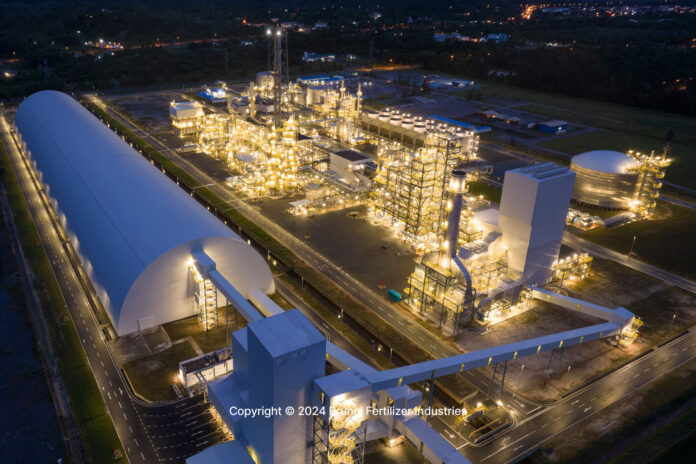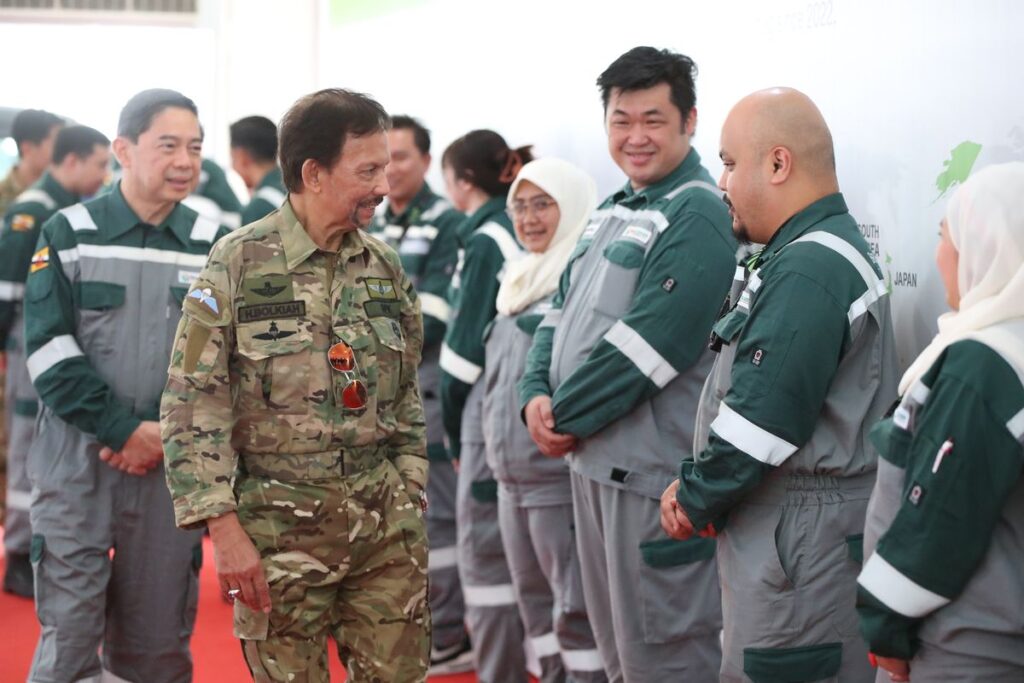

Dr. Harri Kiiski was appointed CEO in 2022, as the company was transitioning from its commissioning phase into a fully-fledged commercial operation. Here, he explains how BFI is supporting Brunei’s economic diversification strategy as it creates new downstream opportunities for the oil and gas sector.
Q: As CEO of BFI, can you outline the key decisions you have made so far?
BFI is a young company – established in 2013. Since then, there has been significant growth. As CEO, my first task was preparing for commercial operations after transitioning out of the commissioning phase.
Naturally, my initial focus was meeting customers to understand their expectations from a new market player. We adjusted our offering accordingly, making customer satisfaction our top priority. The next step was establishing production and stabilizing company operations.
Throughout, we have built a reputation for quality and have developed positive customer relationships across the region. Geographically, our market spans from Africa to the West Coast of the Americas, including countries like Thailand, Cambodia, Vietnam, Philippines, and Malaysia in the North, and Oceania, Australia, and New Zealand in the South.
Q: How are you fulfilling BFI’s mission to lead the nation’s industrialization program?
Many expatriates from various countries have contributed to the commissioning and operation of our plant and are now involved in training and enhancing the skills of the Bruneian workforce who will eventually take over plant operations.
It is worth noting that historically, Brunei doesn’t have a tradition of fertilizer production. In fact, BFI is the first company in this sector established specifically to create downstream opportunities for the oil and gas sector. To date, we have achieved considerable success in commissioning the plant and establishing a significant market presence.
Q: Who are your primary markets?
These include Thailand, Cambodia, Vietnam, and the Philippines – all reachable within two to four days by sea. This provides a significant advantage compared to transporting fertilizers from the Middle East, which takes 14 to 30 days.
It’s a similar story with shipments to Australia and the west coast of the Americas. Our location offers the shortest logistic distance to these markets, positioning us as a regional hub capable of supplying fertilizers to key regions.
Q: What factors make the UAE particularly attractive for the BFI’s investment and collaboration efforts?
While not our main market for fertilizer sales, the UAE presents valuable opportunities for cooperation – we can explore swapping cargoes, for instance, to optimize logistics.
The UAE’s proximity to Africa and India, and our closeness to Southeast Asia offer logistical advantages that could benefit both parties. Also, as sustainability becomes an increasing priority, we are exploring fresh avenues like green and blue ammonia, which have potential in markets such as Japan and Singapore. Singapore, for example, is targeting around six million tonnes of green ammonia as an alternative fuel.
Q: How does BFI’s strategy align with Brunei’s national goals in priority clusters like downstream oil and gas, services and food – and what investment opportunities does BFI offer potential investors in these sectors?
One important aspect is our alignment with Brunei’s Wawasan 2035 targets. BFI is fully committed to creating job opportunities for Bruneians. We are situated in Sungai Liang Industrial Park (SPARK) in the Belait District, which presents opportunities for new collaboration and synergies – supplying chemicals like nitrogen, hydrogen, and ammonia to other potential industries, for example.

Q: How is BFI driving innovation to maintain its competitive edge, especially considering its output of 1.365m tonnes per year, one of the highest in Southeast Asia?
From a sustainability perspective, our current focus is on bringing coated urea products to the market. These products – including zinc-coated urea, humic acid-coated urea, and inhibitor-coated urea – provide valuable solutions to farmers.
Zinc is crucial for rice yield, and zinc deficiency not only limits agricultural productivity but also affects human health. Humic acid promotes soil health by enhancing root growth, allowing crops to absorb more minerals from the soil, reducing the need for additional synthetic fertilizers. Inhibitors work by minimizing nitrogen loss which helps reduce the environmental impact of fertilizers on climate change.
It is worth noting that fertilizers play a key role in feeding half the world’s population. Without them, global food security would be significantly challenged.
Q: Can you highlight some of your major CSR efforts, and explain how they align with BFI’s broader business strategy?
One of our primary concerns is sustainability, particularly when it comes to improving the carbon footprint of our products. We are examining ways to reduce emissions during production, including transport emissions (scope two) and those directly from production (scope one).
Our plant is among the newest globally, which inherently offers a better carbon footprint compared to older plants which often average 50 years in age. We uphold our corporate responsibilities by contributing to the welfare of our local community and supporting those who are disadvantaged. We also invest in education, collaborating with local universities to develop talents that will meet Brunei’s future needs.
Additionally, we are committed to making a difference with our Bruneian roots, ensuring that our efforts reflect and respect the Brunei philosophy of Malay Islamic Monarchy.
This philosophy underpins our dedication to cultural heritage, social harmony, and religious values, which guide our initiatives and business practices. By aligning our CSR activities with these principles, we strive to support the sustainable development of Brunei and honor the nation’s rich traditions and values.
Q: How have your previous experiences as a research chemist in Norway shaped your leadership and management style at BFI?
It is important to recognize that cultures vary worldwide, and what may be acceptable in Nordic culture may differ in the Middle East or Southeast Asia. Lifelong learning is key, particularly in understanding how to effectively interact with people, as individuals ultimately shape outcomes. Having an international career and working across different companies abroad provides the invaluable skill of navigating diverse cultures, which is a significant asset.
This article was extracted from the Gulf News’ Brunei Business Feature published on July 29, 2024.






![[Video] Australia and Brunei strengthen ties through collaboration and shared vision](https://www.bizbrunei.com/wp-content/uploads/2025/03/AUS-Youtube-Thumbnail-218x150.jpg)






![[Video] Inside Brunei Fertilizer Industries: Pioneering Brunei’s entry into the global fertiliser market](https://www.bizbrunei.com/wp-content/uploads/2025/03/BFI-Youtube-Thumbnail-100x70.jpg)